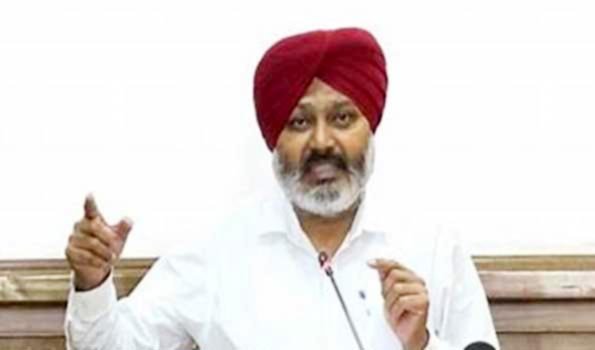New Delhi, Jan 10 (UNI) The Supreme Court on Wednesday adjourned the plea of former JNU student Umar Khalid, the key conspirator in the Delhi 2020 riots challenging the Delhi High Court order denying him bail. The bail plea was adjourned as the senior lawyers representing Khalid were engaged in another case before the Constitution Bench.
A bench comprising Justice Bela M. Trivedi and Justice Pankaj Mithal showing immense displeasure, reluctantly deferred the hearing.
When the matter was called on today, senior advocate Kapil Sibal appeared before the court and sought more time. He apprised the Court that since he was engaged in a constitution bench matter and the Additional Solicitor General S.V Raju appearing on behalf of the State was also not available, the matter should be posted to some other date.
To which the bench rejected the request outright “He is in Jail. How does it matter? The court said. In the earlier hearing also, on November 29, 2023, both counsels on a joint request had sought to adjourn the hearing of the matters on the ground of the non-availability of Senior Advocates who are going to argue the matter.
The bench showing displeasure finally agreed to list the matter on January 17, Mr Sibal further requested to let the matter be listed on January 24, to which the bench agreed.
Supreme Court was hearing Umar Khalid’s bail application in the Delhi 2020 riots larger conspiracy case. In his petition, he has also challenged the validity of UAPA provisions.
Umar Khalid has challenged the Delhi High Court order by which on October 18, 2022, it dismissed his bail application. The High Court noted that the acts of the accused prima facie qualified as terrorist acts under the anti-terror law UAPA.
A Bench of Justice Siddharth Mridul and Justice Rajnish Bhatnagar of the Delhi High Court said, that the anti-CAA protests metamorphosed into violent riots, which prima facie seemed to be orchestrated at the conspiratorial meetings, and the statements of the witnesses indicate Khalid’s active involvement in the protests.
In its 52-page order, the High Court observed that the planned protests were not the kind that is normal in political culture or democracy but were far more destructive and injurious and geared towards extremely grave consequences. The acts of the accused prima facie qualified as a terrorist act under the UAPA, The High Court ruled.
Umar Khalid, Sharjeel Imam, and several others were booked under the anti-terror law Unlawful Activities (Prevention) Act (UAPA) and provisions of the Indian Penal Code for allegedly being the “masterminds” of the February 2020 riots, which left 53 people dead and over 700 injured.











